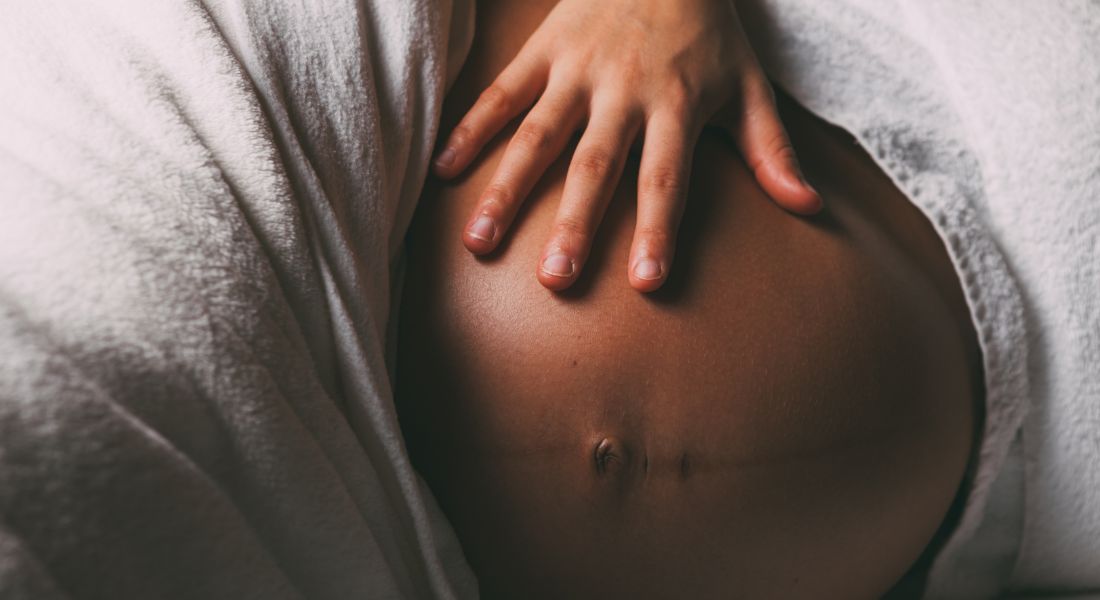New malaria study is good news for pregnant women
Each year, 13 million pregnant women get malaria, and as drug resistance increases, the disease is hard to control. A new study provides the WHO with new knowledge on prevention and treatment.

In the bustling streets of Korogwe in Tanzania, a pregnant woman is moving through the crowds trying to fan the mosquitoes away. She is all too familiar with the dangers of malaria – one of the deadliest diseases among pregnant women, especially in sub-Saharan Africa.
Though the scene is imagined, this is the reality facing millions of pregnant women all over the world every day. If they get infected, there is a high risk of dying for both the mother and the unborn child.
Malaria increases the risk of premature birth and low birth weight. The infant mortality rate is three times as high for children born at term with low birth weight and up to 10 times as high for children born prematurely with low birth weight.
Malaria is a parasitic infectious disease which spreads to humans through bites from infected mosquitoes. Even though history has seen many efforts to control and eradicate malaria, it continues to be a serious global health problem with 247 million new cases and 619,000 deaths in 2022, according to the WHO.
Unfortunately, the malaria parasite has developed resistance to certain types of antimalarial drugs, and the WHO is therefore looking for alternative treatments.
They are getting help from a group of Danish researchers. Together with the EU-funded international consortium IMPROVE, they have studied a new drug to prevent malaria. The promising results have been published in the esteemed journal The Lancet.
“Our study shows that the new drug we have tested has a unique ability to prevent malaria. But we also learned that pregnant women benefit unexpectedly from an existing drug, even though resistance to this drug is high in some areas,” says Associate Professor Michael Alifrangis from the Centre for Medical Parasitology (CMP) at the University of Copenhagen.
Just under 5,000 pregnant women from Kenya, Tanzania and Malawi in East African participated in the study. Some of the women were treated with the new, promising drug for prevention, dihydroartemisinin-piperaquine (DP), while others were given the common, recommended drug called sulfadoxine-pyrimethamine (SP).
“We expected DP to be so effective against malaria that we would be able to advise the WHO to exchange SP for DP. But the study showed that SP appears to protect women from sexually transmitted and reproductive tract infections (STIs and RTIs),” says Postdoc and Doctor Christentze Schmiegelow from CMP.
The solution may be a combination
The history of malaria can be traced back to ancient civilisations of Africa, Asia and South America, and the first effective treatment was quinine, first extracted from the bark of the cinchona tree in Peru in the 17th century. Since then, the world has seen various types of malaria drugs, including SP.
Unfortunately, parts of sub-Saharan Africa are seeing an increase in SP-resistant parasites. Researchers therefore need to find alternative ways of preventing and treating malaria in pregnant women.
And according to the results of the new study, the new (malaria) drug is very promising, and so, more tests have been launched.
“Right now, there are other clinical studies underway to see whether it is possible to combine the two drugs, SP and DP. The problem is getting pregnant women to take two types of medication instead one. This may prove a challenge,” says Christentze Schmiegelow.
The researchers know from experience that women are reticent about taking several types of medication at once due to fear of side effects or negative interaction with the medication they are already taking. In addition, the healthcare system may object to buying two drugs instead of one. SP is cheap, but DP is not. But of course, the expenses should be compared to the costs of women and infants falling ill or dying.
The new study is an important contribution to our understanding of which measures effectively prevent and treat malaria in pregnancy, Michael Alifrangis concludes.
Pascal Magnussen and Helle Hansen at the Department for Immunology and Microbiology at the University of Copenhagen was heavily involved conducting the study.
Contact
Associate Professor Michael Alifrangis
+45 23 45 18 04
micali@sund.ku.dk
